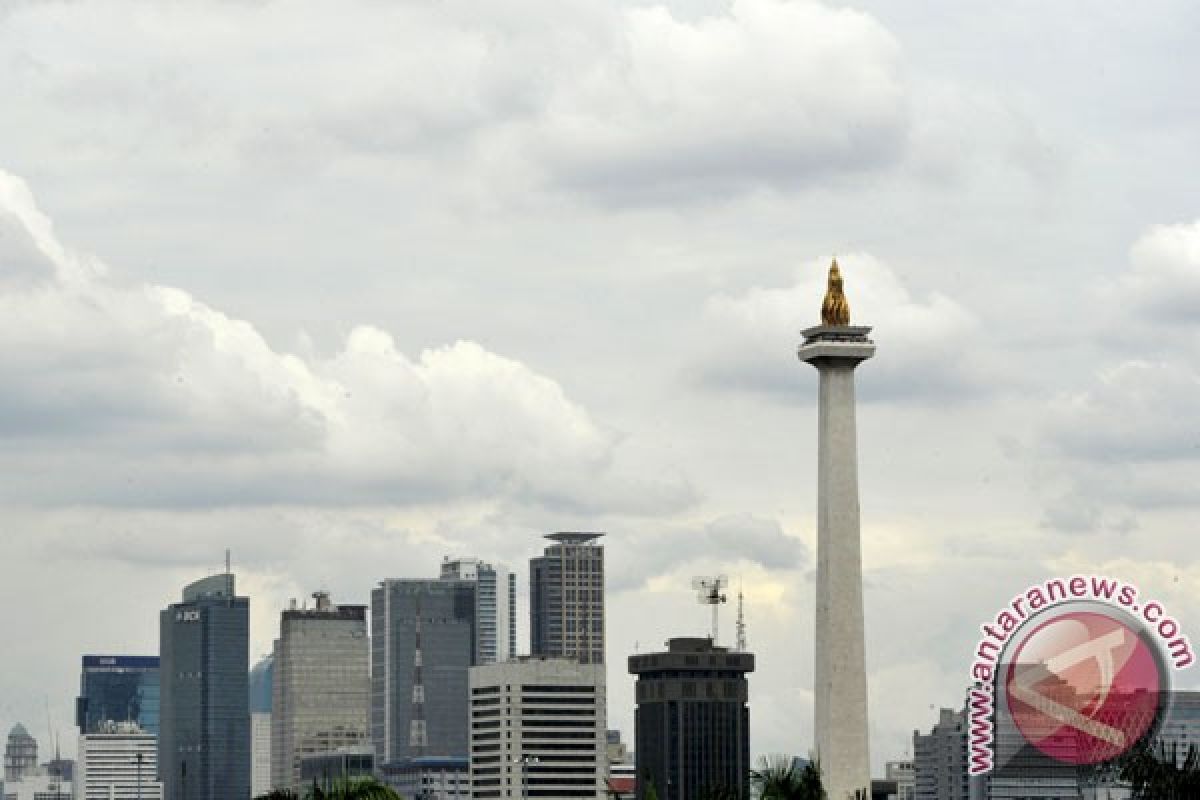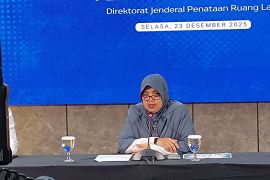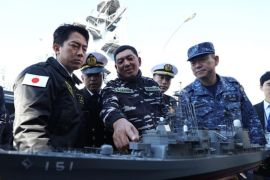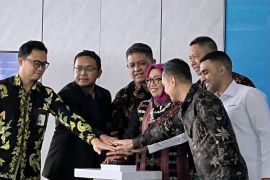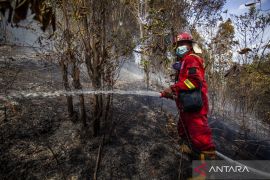"I am very much convinced that the current 21st century will be the best century for Indonesia, as the country is destined to emerge as an Asian giant," former Indonesian ambassador to the United States Dino Patt Djalal, who is now taking part in the ruling Democratic Party presidential candidate convection, said in Mataram, West Nusa Tenggara, on Wednesday last week.
As part of the development, the Ministry of Industry is encouraging the acceleration and equitable distribution of locating industries throughout the country.
"We hope we can continue to develop industries throughout the country to increase their added values, particularly industries outside Java," Industry Deputy Minister Alex SW Retraubun said in press statement made available to Antara here on Wednesday.
The Ministry of Industry has set itself the target of increasing the added values of the industrial sector from 28 percent in 2013 to 45 percent in 2035, since the national industrial development has gained significant growth following the global economic crisis, which also struck Indonesia in 2008-2009.
"In 2013, the non-oil processing industrial sector grew by 6.10 percent, which was higher than the economic growth at 5.78 percent," the industry deputy minister said.
Non-oil commodity processing industries have become the largest sector contributing to the nations economy, at 20.76 percent. In the meantime, the non-oil processing industries have also begun shifting from the Java Island to islands outside Java, with 24.63 percent outside Java in 2008 to 28.05 percent in 2013.
Further, the non-oil industrial sector outside Java has contributed 6.31 percent to the nations growth, which is higher than in Java, whose growth was only 6.20 percent.
Alex SW Retraubun said that the roles of provincial and district/municipality governments were crucial in the development of industry in the region. This is contained in Articles 10 and 11 of Law No. 3/2014 on Industrial Development.
Currently, the Ministry of Industry is drafting a government regulation (RPP) on the Master Plan for National Industry Development (PIPIN) and on regulations on industrial zones.
The regulation will choose zones of industries that will evolve into industrial growth centers, designated zones for industries, and zones for small and middle scale industrial centers.
With the industrial zones, industries, particularly manufacturing industries, could be developed maximally.
According to Standard Chartered Bank economist Eric Sugandi, Indonesia should carry out industrial structural reforms in the manufacturing sector.
"Structural reforms could be carried out through development of the manufacturing industry. Indonesias exports have weakened because prices of commodities have not improved," Eric said.
He added that the current account transaction deficit would become Indonesias main problem in the coming three to five years unless industrial structural reforms proceeded faster than predicted.
However, he said, Indonesia will achieve a new equilibrium and growth at a range of 5.5 percent to 6.0 percent per annum, after it focused last year on overcoming its current account deficit transactions.
"Indonesia can boost its economic growth to six percent, but it will face current account deficit risks, which is why the government deliberately slowed its economic growth," Eric Sugandi said.
The Standard Chartered Bank economist said fiscal and monetary policies were good for overcoming the short-term current account deficit, but the government needs to carry out effective structural reforms in maintaining the performance of the economic fundamentals.
Finance Minister Chatib Basri concurred with Eric, saying that such monetary and fiscal policies were taken as a short-term solution. For a long-term solution to improving national economic performance, Indonesia should carry out structural reforms.
"This is only a short-term policy. It is impossible to continuously tighten the monetary and the fiscal sectors. It should be balanced with structural reforms carried out within the context of the political system," he said.
Also, he noted, the G20 Forum has appreciated Indonesias monetary and fiscal policies that the government had adopted to overcome its current account transaction deficit.
"The forum viewed that Indonesia had taken correct fiscal policies in reducing fuel subsidies. Bank Indonesia (BI) is also praised for raising its key interest rate, which has strengthened the local rupiah currency," the finance minister said.
Chatib Basri and BI Governor Agus Martowardojo had attended a central bank and finance ministerial meeting of the G20 Forum in Washington, the United States, on April 10-13, 2014.
The finance minister said that the monetary and fiscal policies had been taken to maintain the countrys economic fundamentals and have raised the trust of investors on Indonesias economic prospects.
The government, since in the middle of 2013, has issued a package of economic policies on fiscal and monetary tightening to offset the current account deficit and strengthen the value of the rupiah value against the Greenback.
The economic policy package is mainly aimed at encouraging exports and reducing imports but, as a result, Indonesias economic growth would exceed the 5.8 percent to 6.0 percent level.
This is why, Eric explained, the Indonesian economy will reach a new equilibrium point with a growth at a range of 5.5 percent to 6.0 percent.
Therefore, the structural industrial reforms are expected to move Indonesia towards a better future and become a player in the global economy. With the richness of its human and natural resources, Indonesia could cultivate global capital to emerge as an Asian giant.
Former Indonesian ambassador to the United States, Dino Patti Djalal, said Indonesia had three main assets that could help it become an Asian giant.
Indonesia still has abundant natural wealth, which is promising for development. This is one of the three assets.
The second asset is that Indonesia has a large population of workers at a productive age, which constitutes a demographic benefit. The quality of its human resources continues to be developed through the improvement of education in the country.
He said that the third resource is global capital, which is ready to be invested in countries which have promising and comparative advantages.
In the face of the 21st century era, Indonesia should not be anti-foreign investment, as it must be able to take advantage of foreign capital.
"We have to look at the global era as an opportunity. There are some 16 trillion US dollars invested in the world. We have to take it. The money is very important for Indonesia in the 21st century. We should not be xenophobic. Anti-foreign investment would only be a disadvantage for us," Dino said.
(A014/ INE )
(A014/KR-BSR)
Reporter: Andi Abdussalam
Editor: Jafar M Sidik
Copyright © ANTARA 2014
